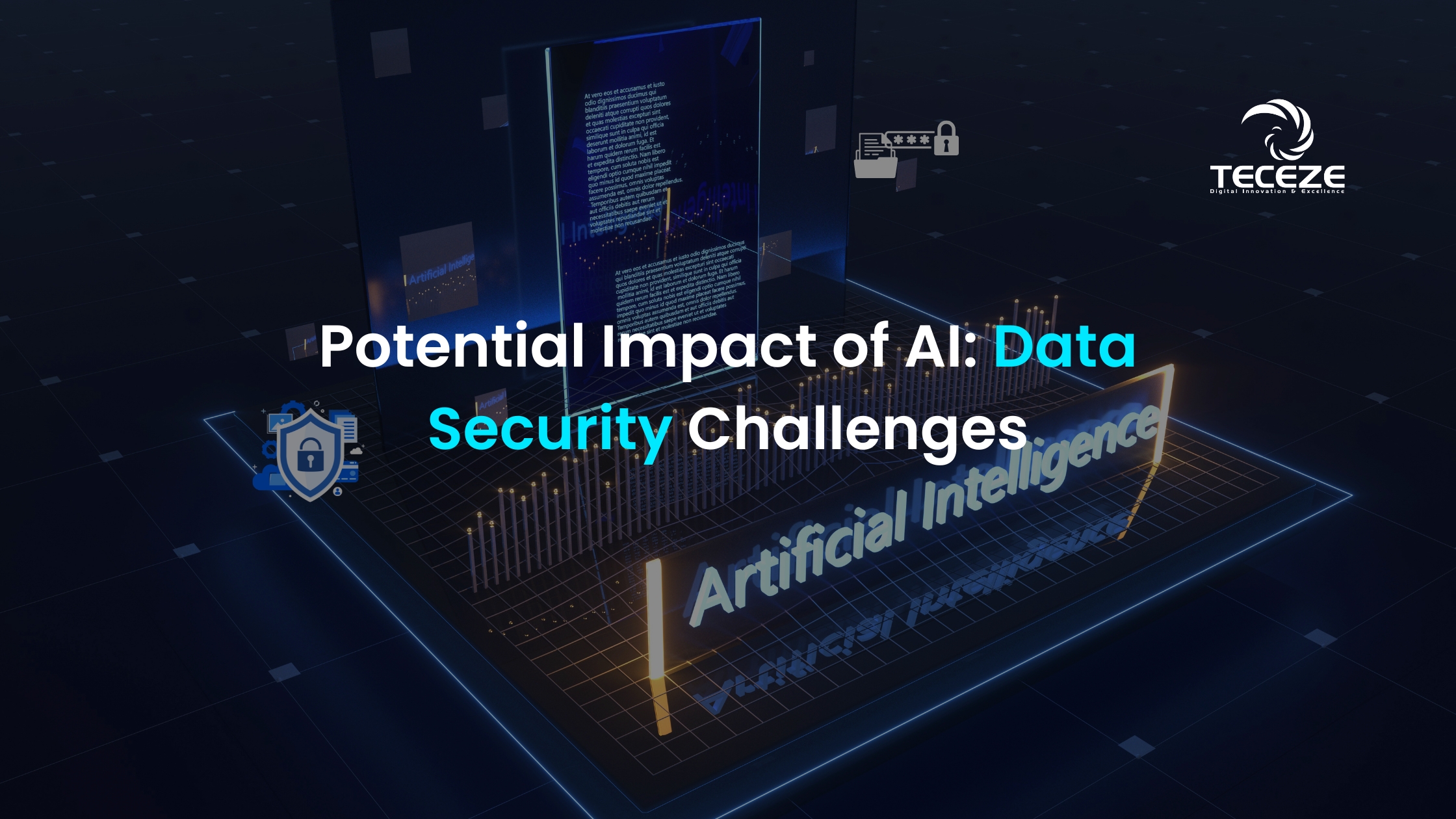Potential Impact of AI: Data Security Challenges
Table of Contents
Challenges of Data Security with AI
In today's age of big data and rapid technological advancements, artificial intelligence (AI) has emerged as a transformative force, promising to unlock insights, drive innovation, and revolutionize industries. However, amidst its myriad benefits, AI also brings forth new challenges, particularly in the realm of data security. Recent surveys indicate that a significant majority of data experts - 80% to be precise believe that AI exacerbates data security challenges rather than alleviating them. Let's delve into this paradox and examine the underlying reasons.
The Potential of AI in Data Security
AI holds great potential for enhancing data security efforts. Its capacity to analyze vast datasets at unparalleled speeds offers opportunities for more effective threat detection, anomaly identification, and risk mitigation. Machine learning algorithms can glean insights from historical data patterns to predict and prevent security breaches, while natural language processing (NLP) algorithms can parse through unstructured data to pinpoint sensitive information and potential vulnerabilities.
The Obstacles
-
Expanded Attack Surface: While AI can fortify defense mechanisms, it simultaneously widens the attack surface for cybercriminals. The adoption of AI-driven technologies like IoT devices, cloud computing, and autonomous systems inadvertently creates new avenues for malicious actors to exploit.
-
Advanced Cyber Threats: Cybercriminals leverage AI's capabilities to orchestrate more sophisticated and targeted attacks. AI-powered malware can evade traditional security measures by dynamically adjusting its behavior, rendering detection and mitigation efforts more challenging.
-
Data Privacy Concerns: AI algorithms heavily rely on extensive datasets for training and improvement. However, these datasets often contain sensitive information, raising concerns about privacy breaches and regulatory compliance. Unauthorized access to AI training data could lead to data leaks or misuse of personal information.
-
Algorithmic Bias and Fairness: AI algorithms inherit biases present in the data they are trained on. Biased algorithms can perpetuate unfair or discriminatory outcomes, particularly in domains like hiring and criminal justice. Additionally, adversarial attacks can exploit vulnerabilities in AI systems, further complicating matters.
Mitigating AI-Related Data Security Risks
Despite these challenges, organizations can proactively address AI-related data security risks:
-
Implement Robust Security Measures: Employ a multi-layered cybersecurity approach encompassing encryption, access controls, and continuous monitoring to combat evolving threats.
-
Ensure Data Privacy and Compliance: Establish stringent data governance policies and mechanisms to safeguard sensitive information and comply with regulations such as GDPR and CCPA.
-
Address Algorithmic Bias: Conduct regular audits to identify and rectify biases in AI algorithms, fostering transparency and accountability in AI decision-making processes.
-
Invest in AI Ethics and Education: Provide comprehensive training on ethical AI principles and responsible data usage to AI practitioners and decision-makers, ensuring awareness of the societal implications of AI-driven technologies.
Embracing Responsible AI Practices
As organizations leverage AI to drive innovation and gain competitive advantage, it becomes imperative to acknowledge and mitigate the data security challenges associated with this technological advancement. By embracing responsible AI practices, prioritizing data privacy, and fostering collaboration among stakeholders, businesses can navigate the complexities of AI-driven data security and harness its transformative potential securely and ethically.
In conclusion, while AI introduces complexities and risks to data security, it also presents unparalleled opportunities for organizations to bolster their defenses, detect threats more efficiently, and innovate in the digital landscape. By understanding and mitigating AI-related data security challenges, businesses can harness AI's transformative power while safeguarding the integrity and confidentiality of their data.
 Back to Insights
Back to Insights
 Previous
Previous 